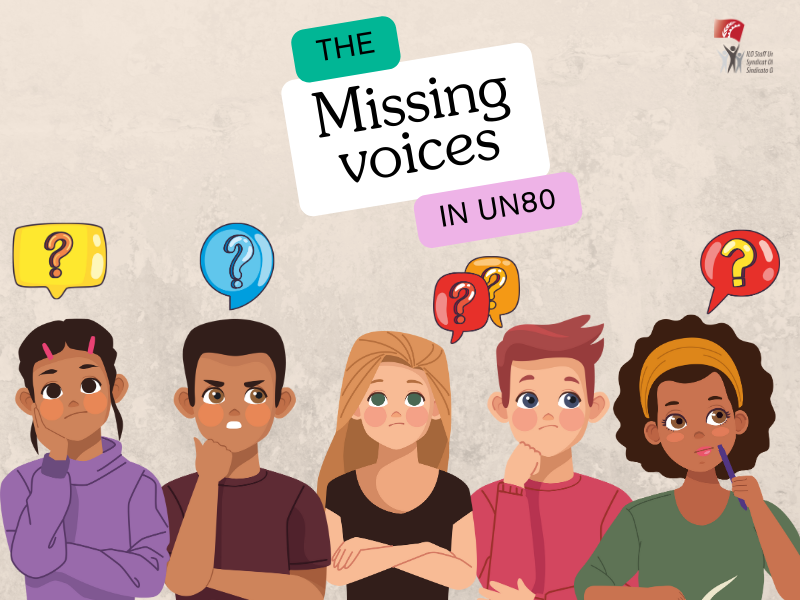At the bottom of this article, you will find the translation into the other working languages of the ILO.
As the United Nations embarks on its UN80 review, many junior international civil servants are left wondering: What does this mean for us? While the review promises a leaner and more agile UN system, it is concerning that young professionals, people with disabilities and other minority groups felt they were not consulted or invited to be part of the discussions.
When the time came to reimagine the future of work within the UN itself, the voices of those most likely to experience its long-term impact were left behind. Junior professionals, often on precarious contracts and facing uncertain career paths, are once again relegated to the sidelines of institutional reform.
A top-down process risks reinforcing structural inequalities rather than addressing them. Without clear commitments to inclusion, career development, and protection of early-career workers, the UN80 reform risks becoming yet another missed opportunity to modernize not only structures but also organizational culture.
More broadly, the limited representation of women and other historically marginalized groups in the review process contradicts the UN’s own principles of diversity and inclusion. How can we speak about a “UN fit for purpose” if the composition of its reform boards looks strikingly similar to the decision-making tables of the past? Inclusion is not a symbolic gesture; it is essential for designing sustainable, adaptive institutions capable of meeting evolving global challenges.
Young professionals and other underrepresented groups should not be passive recipients of reform; they should be co-creators. This means advocating for internal dialogue mechanisms, where their voices can be heard, and greater representation within the UN.
If the UN80 review is to achieve its full potential, it must be recalibrated to include those whose careers will be most affected by its outcomes. The next generation of civil servants deserve a seat at the table. Reform without representation is, ultimately, reform without legitimacy.
Version française (deepl): ici
Spanish version (deepl): aquì
